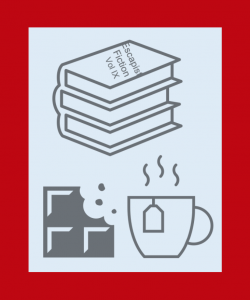In the first of a pair of blogs, Dr Kirstin Purves reflects on resilience from the perspective of an early career researcher. Next up will be the sister blog where Prof Thalia Eley will answer the same questions from the perspective of a senior academic.
What have been your toughest experiences as an ECR that have required you to build resilience?
While your first paper rejection or first set of difficult reviews is definitely tough, I think the toughest so far was being rejected for a fellowship for which I had gotten to the final interview round, and that from planning to rejection took the best part of a year to prepare. I suppose it was the first really significant rejection in my academic career, and it hit me pretty hard at first.
What did you find helps at these times?
First: wallowing. Don’t get me wrong, I think the more positive coping strategies are important, but personally, I find it helps me if I let myself just feel rubbish for a little while and acknowledge the fact that this sucks! Alongside the wallowing, one of the most helpful things is good, kind and thoughtful people, particularly those who could relate or understand the particular brand of academic rejection from a range of different career stages. The kind words and gestures that remind me that we all experience these things, that it doesn’t devalue me as a scientist, and that I have a supportive network who will continue working with me regardless, was really powerful. Finally, starting the process of reframing, reappraising, and moving forward. Even something that ends in rejection can give you a lot of really useful feedback and action points along the way. I’ve worked out what I can do to make things stronger next time, and am trying (mostly successfully now) to see this as an opportunity to make my ideas stronger and even more developed next time around.
What makes you want to keep going?
A big part is coming to the realisation that a rejection isn’t a reflection of my potential. A wise friend told me recently that you have to focus on what you can and can’t control. A rejection based on something you can control (even if it feels super hurtful) is an opportunity to get better than you would have been if you weren’t rejected. Sometimes something that initially feels out of your control (“the reviewer didn’t understand my analysis and suggested that I change something I didn’t even do?!”), actually is (“Oh. I really need to write this better so it is super clear what I did and how I did it so that readers can follow it easily”). Also, realising that rejection might be an opportunity to make things better and stronger really helps me keep going. Eventually.
Before that positive reframing malarky, I get by remembering that if everything falls apart on the back of this one rejection (don’t judge me – exaggerating the awfulness helps sometimes) there are still other options. Even a harsh rejection is not a total dead-end, at worst it’s a detour. As someone who usually finds detours interesting in the real world when there is no time pressure on reaching the destination, I find this helps me too.
What would you say to ECRs that might help them prepare for these challenges?
Brace yourselves! It’s going to happen. Sometimes it’s probably going to be more devastating than others. So maybe keep that emergency comfort at hand, whatever that might be for you. I’m thinking of installing a “break glass in case of major rejection” box next to my desk. Inside I will stash an escapist (totally fiction!) book, drink of choice, and bar of chocolate, ready at all times!
Remember it happens to everyone. Do not rely on Twitter or university newsletters for your perception of reality. It was amazing how many people who are brilliant and successful sent me messages about their first and various major rejections to offer me comfort. I still find it comforting to know that this does happen all around.
Build that network! Reach out to new people, make time for coffee and chats with colleagues and co-workers, or even people who work on the same floor but on something totally different. Send someone a message on Twitter, or speak to them at a conference (in person or chat box, whatever the world allows for), or connect with people however you feel comfortable doing so. Share your successes and rejections with a supportive network who will get it! Just remember that being a scientist never means you have to go it alone.
And finally, celebrate every win! I think it’s easier to handle rejection if you can fall back on all the successes you’ve had and will have. And I think this is way easier if you start noticing those successes along the way. Don’t get me wrong, this takes active attention and practice, and sometimes reminders, but you can do it! And maybe you can be that reminder for your friends, students and co-workers when they need it. Let me help you practice:
Got an analysis running? That can take days! And even if it just took an hour or two, having wrapped your head around what was needed and how to achieve it and actually make it happen deserves a self-congratulatory pause at the very least!
Finished the analyses for a paper?! Do you know how complex this part of a paper is? You’ve probably learned a lot along the way, resolved challenges and issues you didn’t even know existed before you started! Maybe built up your network as you’ve sought advice, help and feedback. I bet you even used a whole new package/approach/software you clever duck. Tell someone. Make yourself a special dinner!
You get the idea…
Admittedly, I fail to celebrate many successes, and often they hold less space in my head than the rejections, but I see it as a work in progress and fully intend to get better at it.
So, on that note, I’m going to go celebrate finishing this blog with a quick chat with a friend and a cup of tea.



[…] In the second of this pair of blogs, Prof Thalia Eley reflects on resilience from the perspective of a senior academic. If you missed our previous blog where Dr Kirstin Purves answered the same questions from the perspective of the early career researcher here. […]